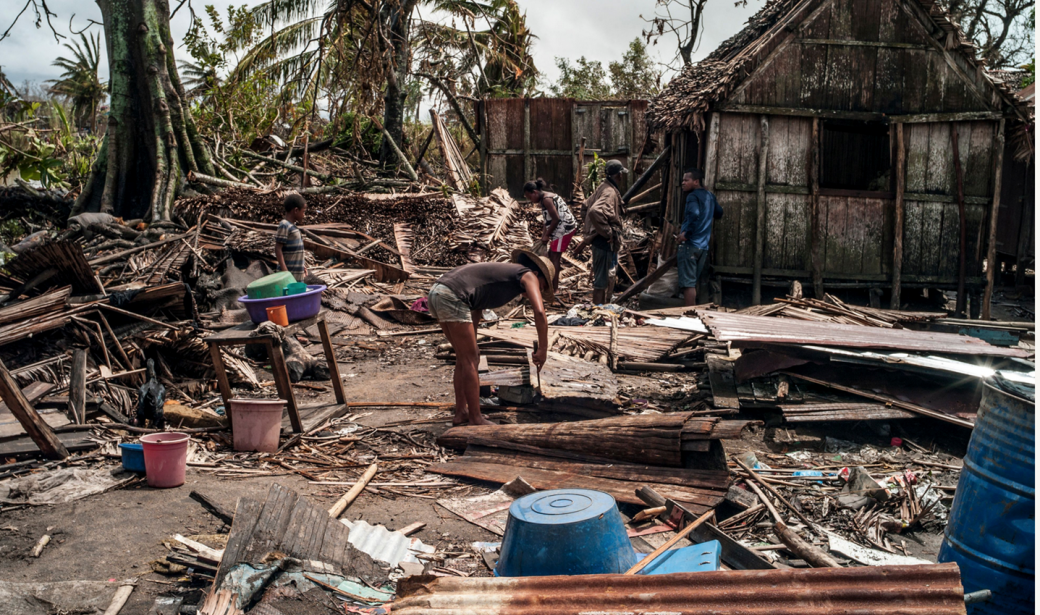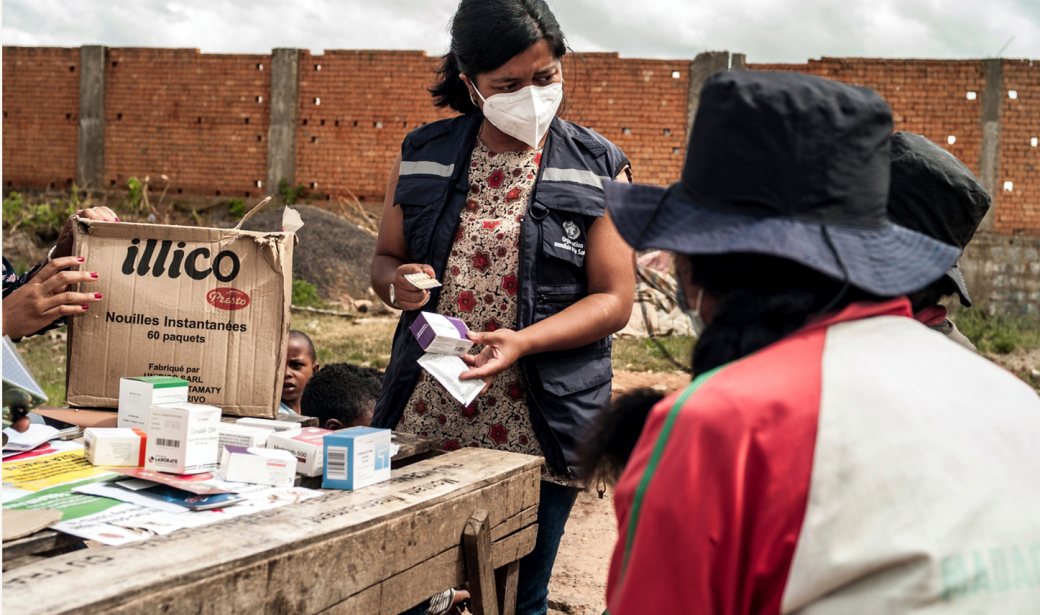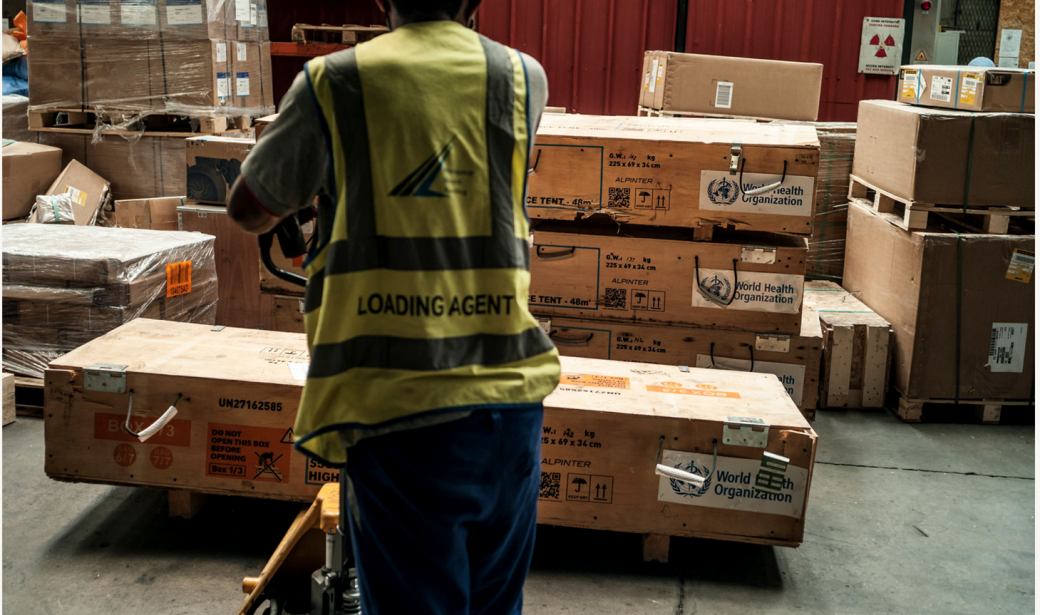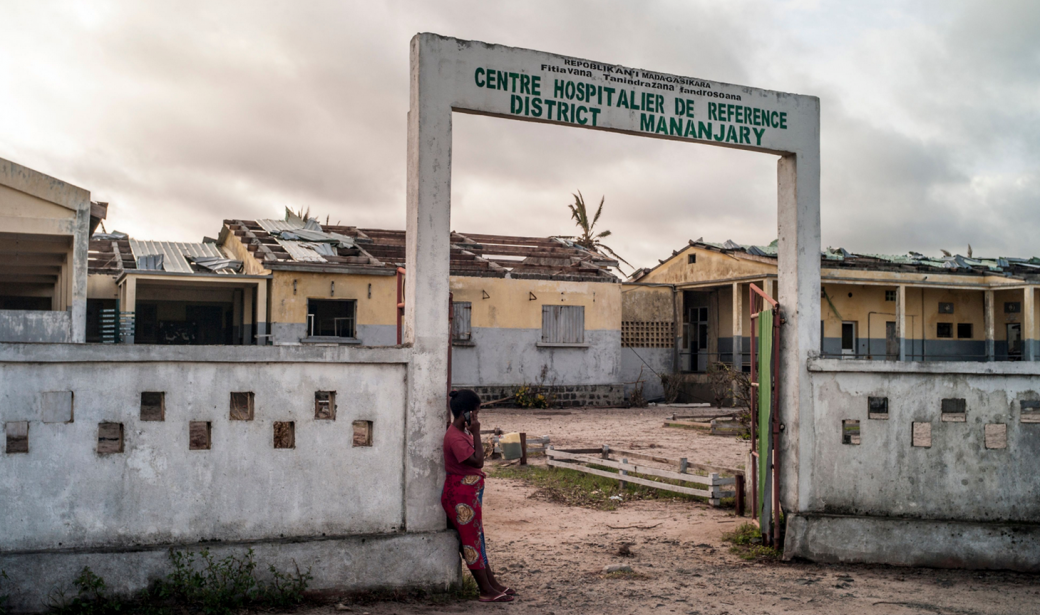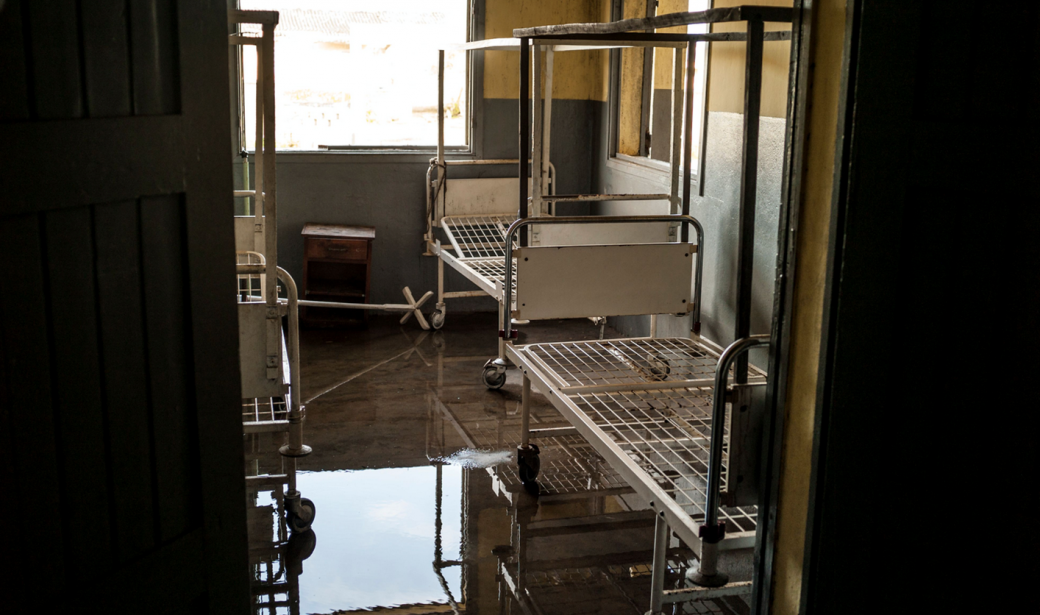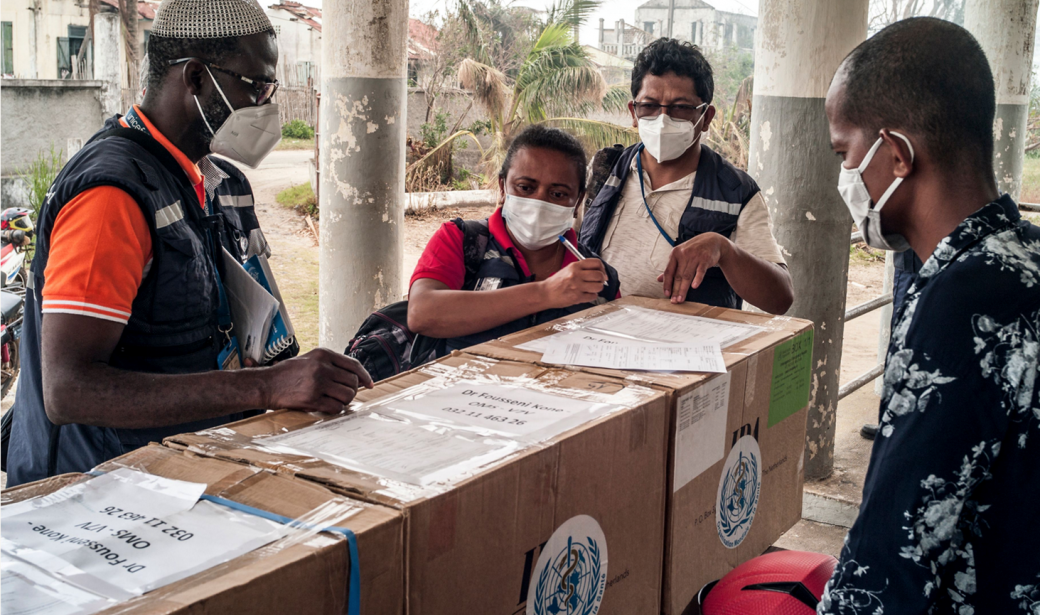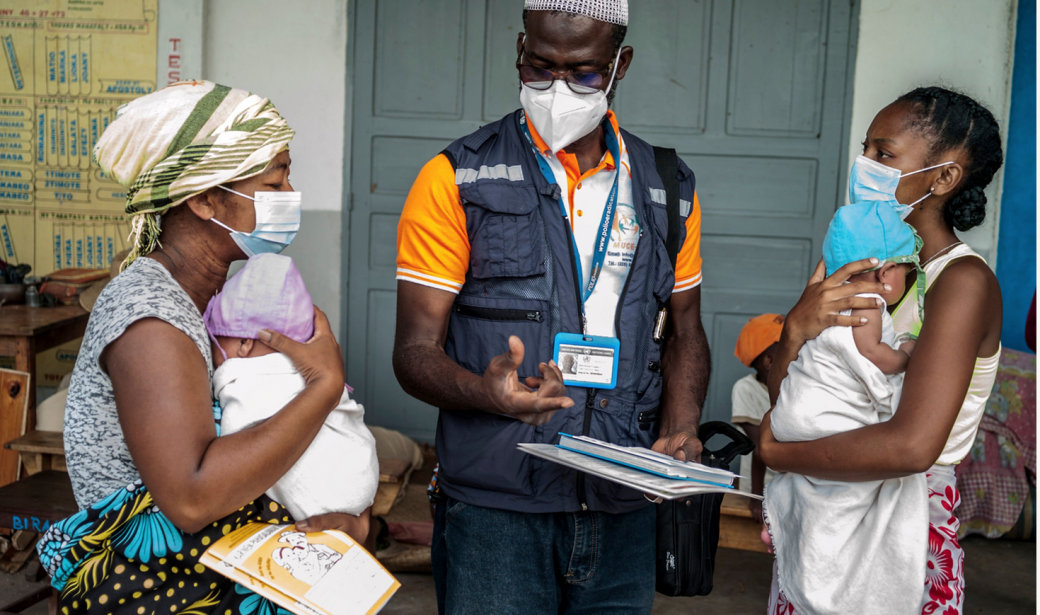Antananarivo – When tropical cyclone Batsirai hit Madagascar on 5 February 2022, the country was already grappling with multiple health emergencies. Batsirai hit Madagascar as the Indian Ocean island was still reeling from the devastating impact of tropical storm Ana that made landfall two weeks earlier, killing 55 people and displacing thousands and leaving a trail of destruction in 12 of the country’s 23 regions. Two other cyclones swept through the country later in February, leaving a trail of destruction including of health facilities. In total, the storms and cyclones have claimed 204 lives and left 650 000 people with no access to basic health services. With the support of the World Health Organization (WHO), the national health authorities deployed experts and medical supplies to prevent any cholera and malaria outbreaks and restore health services.
In Madagascar’s eastern Mananjary region, a family sifts through debris to collect materials that can still be used from her house that was swept away by tropical cyclone Batsirai. The family hopes to recover some of the iron sheets to resell and buy food. Cyclone Batsirai caused at least 121 deaths and affected nearly 147 000 people.
When Batsirai hit Madagascar, the country was already dealing with the destruction and deaths caused by the tropical storm Ana. In the low-lying areas of the capital region, floods deprived thousands of essential health services and exposed them to the risk of malaria and other diseases. Dr Andriamahefason Navalona is a member of the WHO emergency response teams deployed to support the government’s efforts to restore healthcare services and provide emergency medical kits.
WHO swiftly mobilized resources and shipped 5.7 metric tons of medical supplies, emergency kits and tents from the its logistic hub in Ghana. The first batch arrived in the country less than a week after the cyclone Batsirai made a landfall. The supplies were rapidly deployed to the most affected regions on the eastern coast.
In Mananjary district, which Batsirai first hit, the Reference Hospital Centre was badly destroyed, with the roof ripped off and medical equipment damaged. Patients had to be moved to least affected facilities, including the Sainte-Anne Catholic Hospital, in Mananjary city.
In total 93 health facilities have been destroyed, leaving over 304 000 people without access to health services.
In total 93 health facilities have been destroyed, leaving over 304 000 people without access to health services.
With the wind blowing at up to 180 km/h, Batsirai damaged most of the reference hospital’s facilities. Temporary health units had to be set up in what is left of the Reference Hospital Centre to provide basic healthcare, including maternal care.
In addition to a technical support to local authorities, WHO aims to strengthen health services with mobile teams which will be deployed in town and in remote communities that were also affected by the cyclone and don’t have access to healthcare.
In addition to a technical support to local authorities, WHO aims to strengthen health services with mobile teams which will be deployed in town and in remote communities that were also affected by the cyclone and don’t have access to healthcare.
The kits contain rapid tests and medication. With the flooding, the risk of an increased malaria prevalence is very high.
“Malaria is endemic to the region and most of mosquito nets were swept away by the cyclone and people had to move to displacement sites. The immediate emergency is to avert potential widespread infection,” explains Dr Fousseni.
“Malaria is endemic to the region and most of mosquito nets were swept away by the cyclone and people had to move to displacement sites. The immediate emergency is to avert potential widespread infection,” explains Dr Fousseni.
Dr Fousseni carries out public education on the critical importance of malaria prevention following natural disasters, such a tropical cyclone. “We also sensitize on the importance of vaccination to prevent diseases such as polio, measle and tetanus while we support health authorities in restoring healthcare services,” he says.
As populations were still recovering from the passage of Batsirai, a new tropical cyclone – Emanti – hit the country two weeks later. “The priority is now to restore all healthcare services continuity,” Dr Kone says.
An emergency medical team from the Polish Centre for International Aid joined others already on ground to help provide essential health services in hard-to-reach communities. The teams have provided care to more than 1000 people in Manakara and Vohipeno.
As populations were still recovering from the passage of Batsirai, a new tropical cyclone – Emanti – hit the country two weeks later. “The priority is now to restore all healthcare services continuity,” Dr Kone says.
An emergency medical team from the Polish Centre for International Aid joined others already on ground to help provide essential health services in hard-to-reach communities. The teams have provided care to more than 1000 people in Manakara and Vohipeno.
For Additional Information or to Request Interviews, Please contact:
Collins Boakye-Agyemang
Communications and marketing officer
Tel: + 242 06 520 65 65 (WhatsApp)
Email: boakyeagyemangc [at] who.int (boakyeagyemangc[at]who[dot]int)




